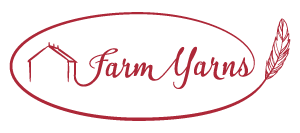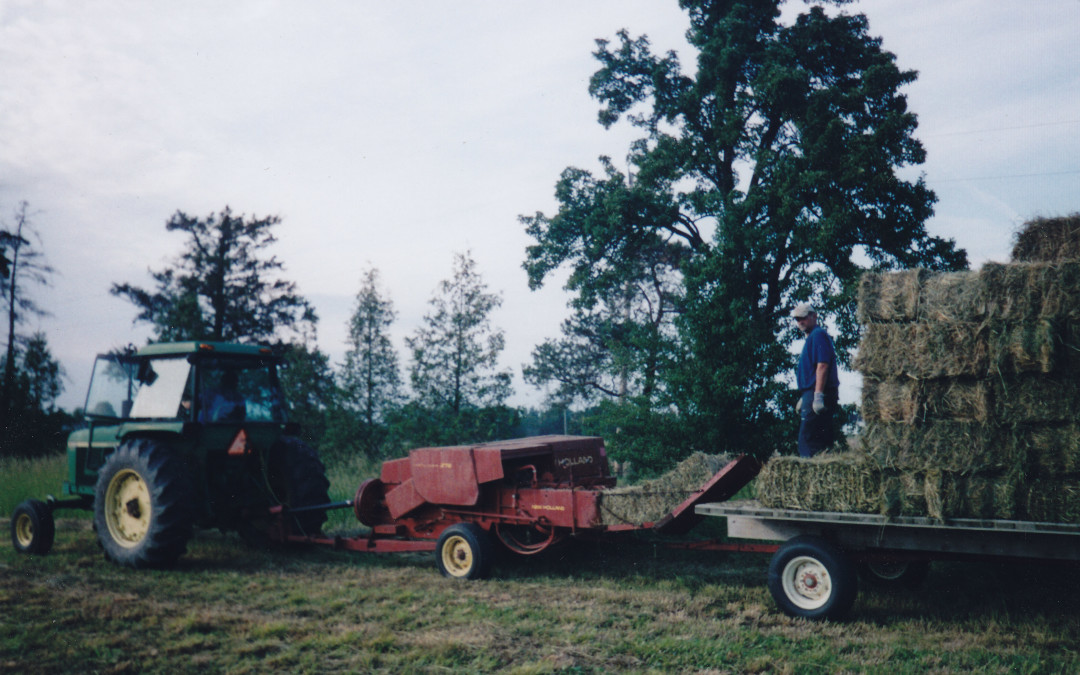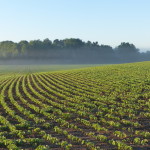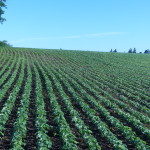My stomach clenched, my hands gripped the steering wheel with white knuckles, my brain addled by the whirling of my head front to back side to side, my left leg ached with tension as it hovered over the clutch pedal. And yet I was proud, so proud of what I was doing, what I was accomplishing. I was baling our hay – I was farming our lovely rolling acres in Elgin County.
When my husband and I bought our little farm in 1990 I was delighted with the rolling landscape. The long, tree-lined driveway mounted the small hill where our house sat rooted deep in the earth, stone foundation solid and steadfast for over a century. The fields behind the barns dropped and rolled gently back to a small woodlot where heavily-used deer trails crisscrossed. The hills beckoned the explorer in me to wander the small valleys and rounded heights. They excited my inner child to see what was on the other side, to roll down with arms wrapped around my sides or crouched on the seat of a bike or with feet tucked in a little red wagon holding tight to the handle like a rudder. What an amazing place to explore and be a kid all over again with our boys. And a great place to learn a lesson about respecting the power of nature.
Our rolling hay field stretched ahead of me, shorn to a stubble, dried alfalfa raked into fragrant billowing parallel lines the length of the farm. I was at the controls of a tall green tractor, cab door and all the windows wide open, diesel engine roaring. With the push of a lever at my elbow, I could start and stop the PTO shaft that brought the old red hay baler to life with a mechanical kachunk, kachunk, kachunk that rocked me in my seat. At the front edge of the baler a cylinder with sharp wire prongs rotated, ready to pull stems into the massive inner workings where bales were formed, packed, cut, tied, then pushed out a long chute at the back. I directed the tractor to the left of a fat windrow and watched as the baler, offset to my right, started raking in the alfalfa. The sound changed as the inner mechanism began to process the mounds of dried hay. The tractor growled as it took more power to turn the PTO shaft. I glanced at the hay wagon hooked to the back of the baler where my husband stood, legs braced as if on the heaving deck of a ship, awaiting bales to build an interlocking load.
The hot summer sun roasted us mercilessly. The tractor cab acted like a convection oven but I had shade and a soft seat for now. I ensured no dried hay was missed plus I had to constantly stop and start, making sure the baler didn’t become over loaded, making sure John wasn’t overwhelmed with too many bales at a time, making sure his tenuous balance was keeping him safely on the wagon as he stacked them up to five layers high and built gradually towards the front of the wagon leaving only a few feet to manoeuver in.
As we moved farther down the field the right wheels of the tractor started to climb the shoulder of one of my beautiful hills. Sitting in that tractor cab the extreme angle did not feel like a gentle rolling hill. I braced my feet and leaned uphill, my stomach fluttering, my mind trying to ignore the imagined tractor rollover images flashing before my eyes. I pivoted in my seat and watched as the baler leaned then held my breath as the wagon climbed first with one wheel, twisting the load, then the back wheel. The wagon bed was slanted precariously and I stopped the run to give John a chance to get accustomed to the angle. My husband waved me on indicating no problem, so onward and upward we moved, my glance constantly watching for a misstep or a sideways sliding load. Being used to the flat plains of Essex County where my parent’s farm had been, our little rolling fields in Elgin seemed like the Rockies to me.
With a mass of clouds appearing on the horizon, our sense of urgency increased. Our band of merry helpers – John’s parents, our young sons, and Joe, a powerful young man who was no stranger to haying – turned it up a notch to beat the oncoming storm. The dried hay had to be baled and put away before the rain hit or it would be ruined. With one wagon full, we rushed to get a second wagon hooked up ready to load. With my brain in rush mode, I made the mistake of unhooking a loaded wagon on the shoulder of one of my gentle hills. In slow motion I saw the wheels slowly begin to roll backwards. I screamed at my own carelessness and put my full weight into trying to stop it.
At a distance my husband saw the disaster waiting to happen, “Get out of there!”
Instead of slowing, the wagon’s speed increased and I had to dance out of the way, shouting a warning. Joe was close by and reacted swiftly. He darted in, grabbed the wagon tongue and heaved it to the side at enough of an angle that the momentum was stopped. For a split second we stood, breathless, watching the wheels roll to a complete standstill. My heart skittered crazily as I blocked a wheel with a rock that I scavenged from the stubble. Disregarding the coming storm, our small gang regrouped to pat Joe on the back and discuss the close call. By the way, I always block wagon wheels now with a trusty chunk of wood that I carry on the tractor.
I still love my hills, rolling acres of rippling green or gold, but now I have a healthy respect for them. Mother Nature gives us reminders now and then not to take her for granted and I’m very lucky that my reminder was a gentle one.





Recent Comments